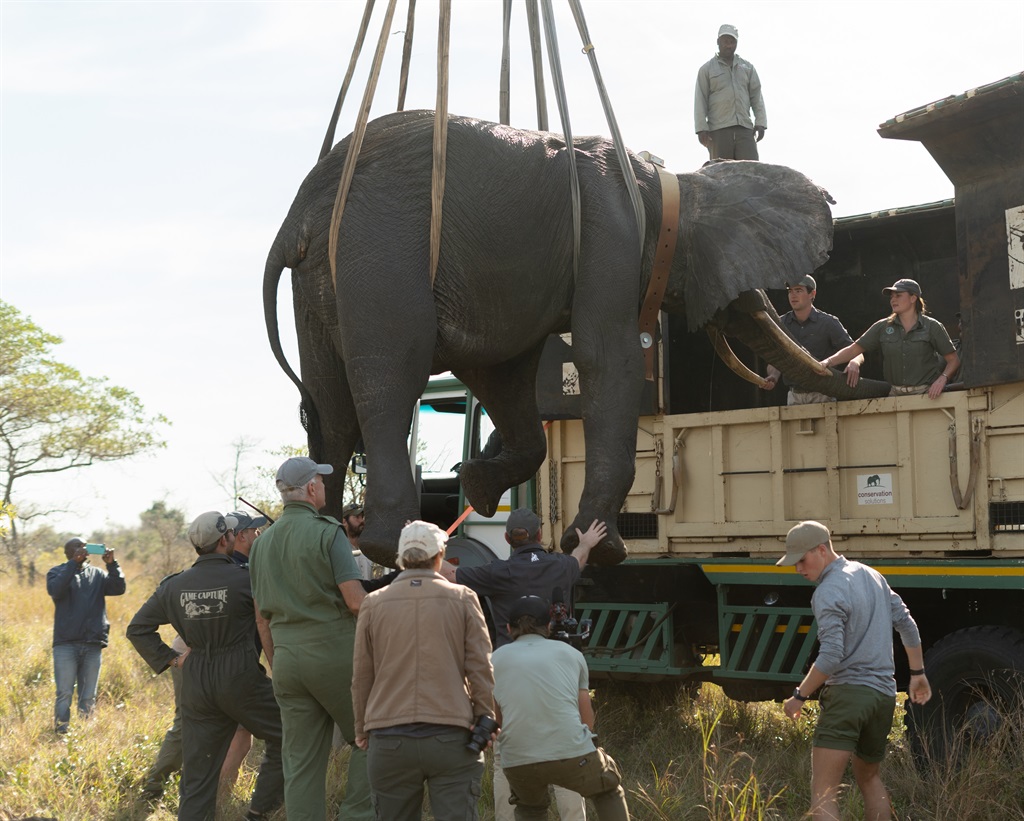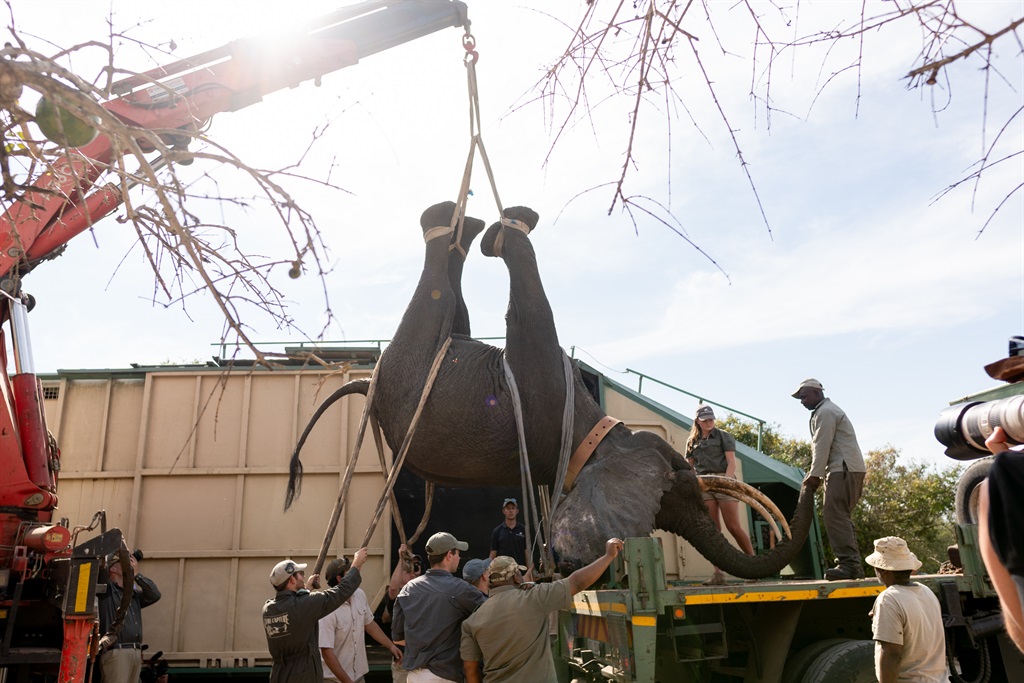
- A game reserve in KwaZulu-Natal that leases land from local communities has introduced elephants into its wildlife space.
- The Babanango Game Reserve will boast these animals for the first time in 150 years.
- The return of elephants to the area is part of ongoing efforts to repopulate the area with genetic diversity.
After more than one and a half centuries, wild elephants have returned to the Babanango area of Zululand in KwaZulu-Natal.
This week, the Babanango Game Reserve announced the introduction of elephants on its 20 000-hectare property.
Elephants have been absent in that part of the province for more than 150 years.
The reserve incorporates a significant portion of land invested by three community trusts.
The income generated through land leases, conservation levies, and other benefits from the reserve is vital for the economic well-being of the surrounding communities.
Kenneth Buthelezi, chairperson of the Emcakwini Community Trust, said the elephants were "unbelievable".
"We are filled with joy and delight that the beautiful rolling hills and mountains of Babanango. [This area was previously] only home to colourful herds of cattle only benefiting a few individuals. It is now a home to the Big Five for the benefit of the majority, who were disadvantaged in the past," he said.
He added that the arrival of elephants fulfilled the dreams of those who initiated the establishment of a Big Five game reserve.
"We express our sincere gratitude to all who were involved in the introduction of elephants. The beneficiaries and community of Babanango are now going to experience something different. With [the] pride of being the owners of both land and its habitants, they will enjoy all the benefits."
READ | Pride and joy: Lions make roaring return to Babanango Game Reserve
Chris Galliers from Conservation Outcomes described the elephant move as a "conservation milestone".
He said:
"We also thank the investors for buying into this vision as well as the Kwangono and Esibongweni communities for adding portions of their land for the same purpose. It has been a privilege to provide development and management support to BGR and being [sic] part of a team that positioned the reserve to become a site for elephant range expansion."
The 16 elephants are made up of a small breeding herd of seven brought in from Manyoni Private Game Reserve in Maputaland, with their genetic lineage coming from Kruger National Park.
There are also two bulls from Tembe Elephant Park in northern KwaZulu-Natal as well as seven elephants from Addo Elephant National Park in the Eastern Cape.
Ryan Andraos, general manager of conservation and operations at Babanango Game Reserve said they were elated.
"This incredible milestone was only possible thanks to so much hard work being done for so many years by so many dedicated people. No words can describe the delight of seeing these pachyderms moving through this magnificent landscape."
Introducing elephants from different locations in South Africa into a single population enhances genetic diversity, which is crucial for the long-term health and viability of the population.
It also contributes to the conservation of this species where in southern Africa, the challenge facing elephants is not the low number of elephants but the reduction in available habitat.
Elephants are megaherbivores and play a crucial role in the ecological function of the reserve.
Not only are they rapid recyclers of plant matter that help other species, like dung beetles and birds, but they are also habitat engineers, modifying the landscapes as they consume vegetation that other species cannot.
READ | Government calls for input on wildlife conservation policy




 Publications
Publications
 Partners
Partners


























